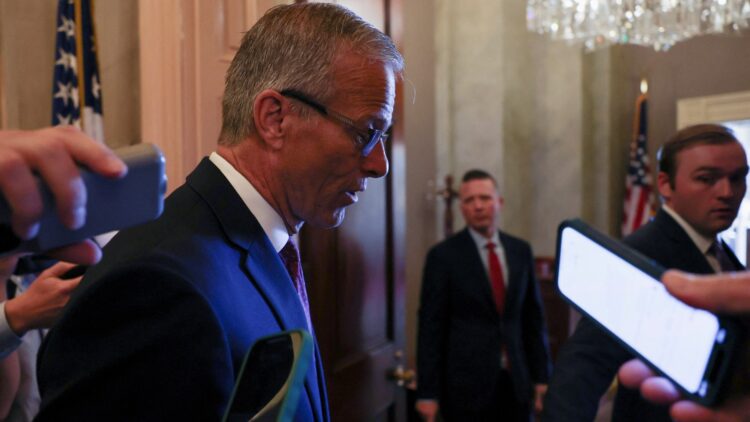The Senate enacted its version of the budget reconciliation measure, which significantly reduces the amount of clean energy tax credits available in the United States. People frequently have huge visions of the energy future, seeing cities running on clean electricity, fields of solar panels, and rows of wind turbines. For many families and businesses, the promise of renewable energy has been about lower bills, new jobs, and doing the right thing for the planet. However, making that vision a reality hinges on choices made in forums such as the U.S. Senate.
The Senate budget bill makes the development of renewable energy more difficult
The U.S. Senate’s massive budget bill that passed on Tuesday will make it harder to develop wind and solar energy projects, despite the removal of some contentious provisions, industry advocates and lawmakers said. The Senate dropped a proposed excise tax on solar and wind energy projects that don’t meet strict standards after last-minute negotiations with key Republican senators seeking better terms for renewables.
Iowa Senator Joni Ernst, fellow Iowa Senator Chuck Grassley and Alaska Senator Lisa Murkowski, whose votes were crucial to the bill’s passage, had introduced an amendment calling for the removal of that tax, which caught lawmakers by surprise after it made it into the last draft text. Many Republican states host large renewable energy industries.
Concern is raised by a budget bill that changes who is eligible for solar and wind credits
The Senate also changed language about which solar and wind projects can use the 2022 Inflation Reduction Act’s tax credits. In the Senate’s final version, projects will be able to use the lucrative credits if they begin construction before 2026. A previous version was based on when the project entered service. But overall, the Senate bill will make it too challenging to move forward with many new wind and solar energy projects.
Likely depriving the United States of added electricity capacity at a time of soaring energy demand, critics said. That could mean higher consumer bills and lost jobs around the country at project sites dependent on the credits. Lena Moffitt, executive director at climate advocacy group Evergreen Action, expressed,
“Senate Republicans just voted to trigger the largest spike in utility bills in American history.”
The renewable sector says competition is harder as more players enter the market
The rise of sustainable energy in America has long been supported by tax credits and other incentives. They aid in levelling the playing field for conventional fossil fuels, such as coal, oil, and gas, which have profited from decades of government subsidies and tax exemptions. Furthermore, renewable energy has contributed to sustainability.
The Trump administration has brushed off criticism of the bill’s aggressive phase-out of renewable energy tax credits and its impact on grid stability and power prices, saying that ending these subsidies will pave the way for preferred baseload energy like gas and nuclear. Energy Secretary Chris Wright said on X,
“The One Big Beautiful Bill removes the nonsense and distortions from energy markets and unleashes American business to produce energy that works WITHOUT subsidies!”
The Senate bill effectively phases out renewable energy tax credits after 2026 if projects haven’t started construction. Otherwise, wind and solar projects whose construction starts after that must be placed in service by the end of 2027. Community solar project developers warned that the bill would stop in their tracks thousands of projects already under development. The key question for the United States going forward is whether it can maintain its commitment to cleaner energy when political tides turn. The answer is now conflicting, and future generations will be impacted by the actions taken.

